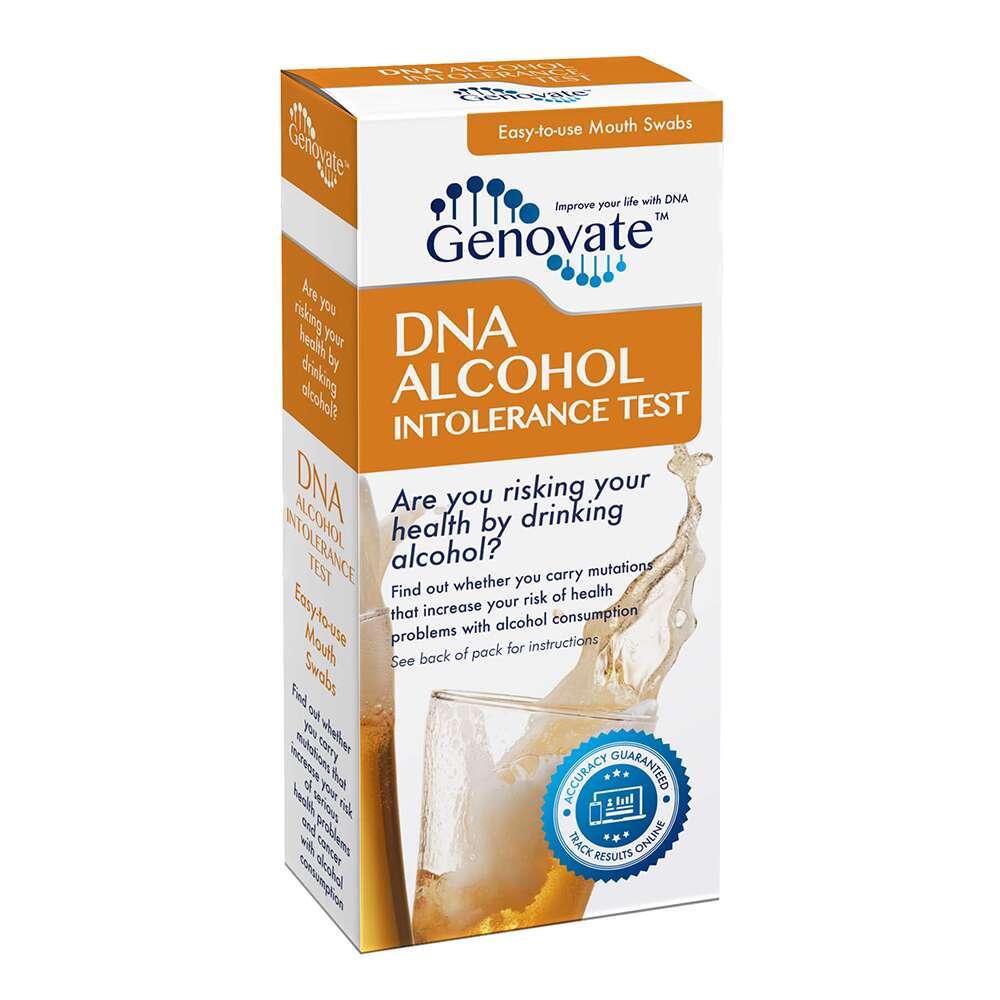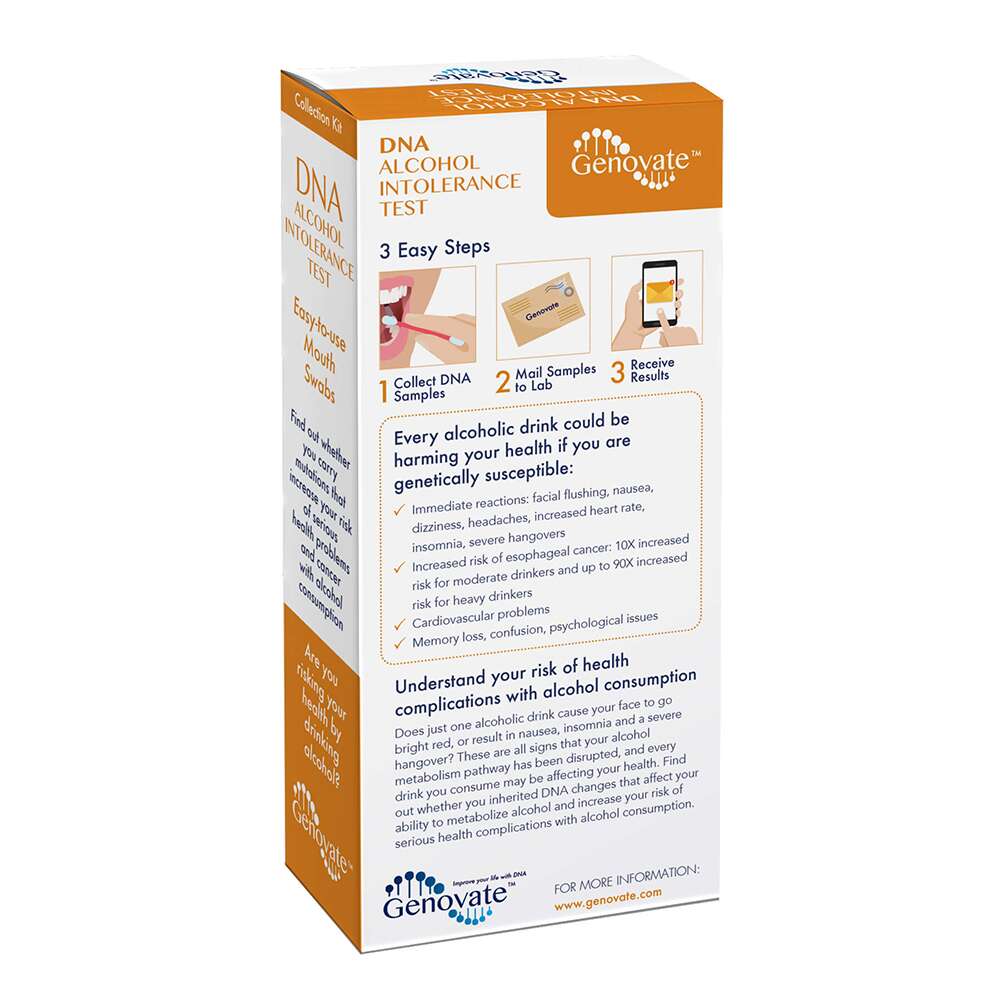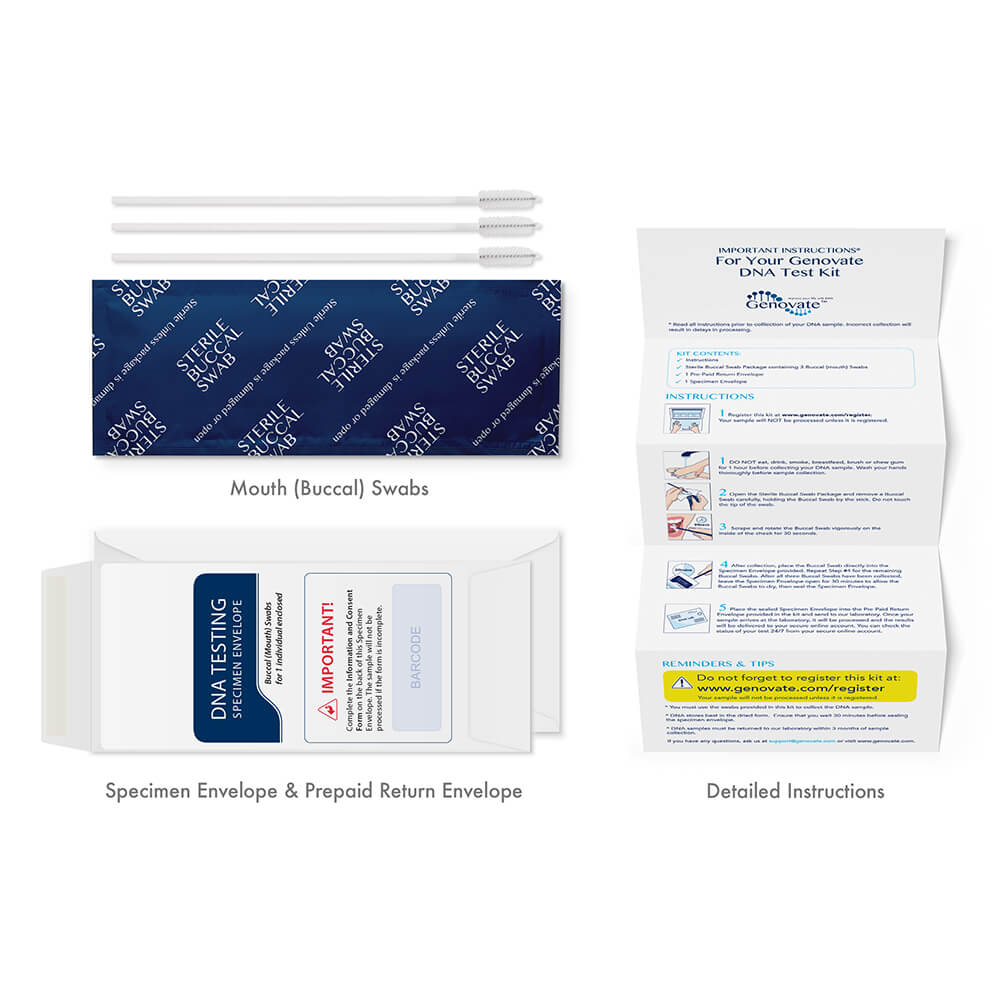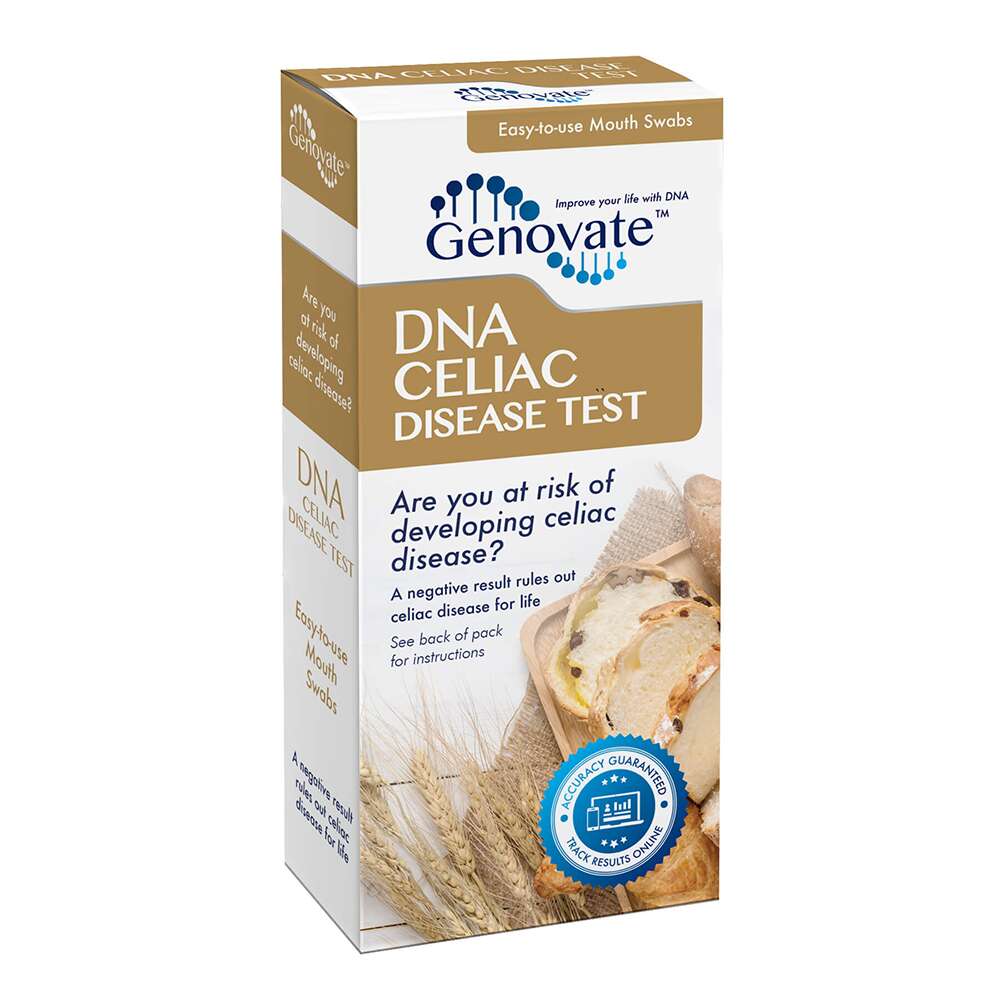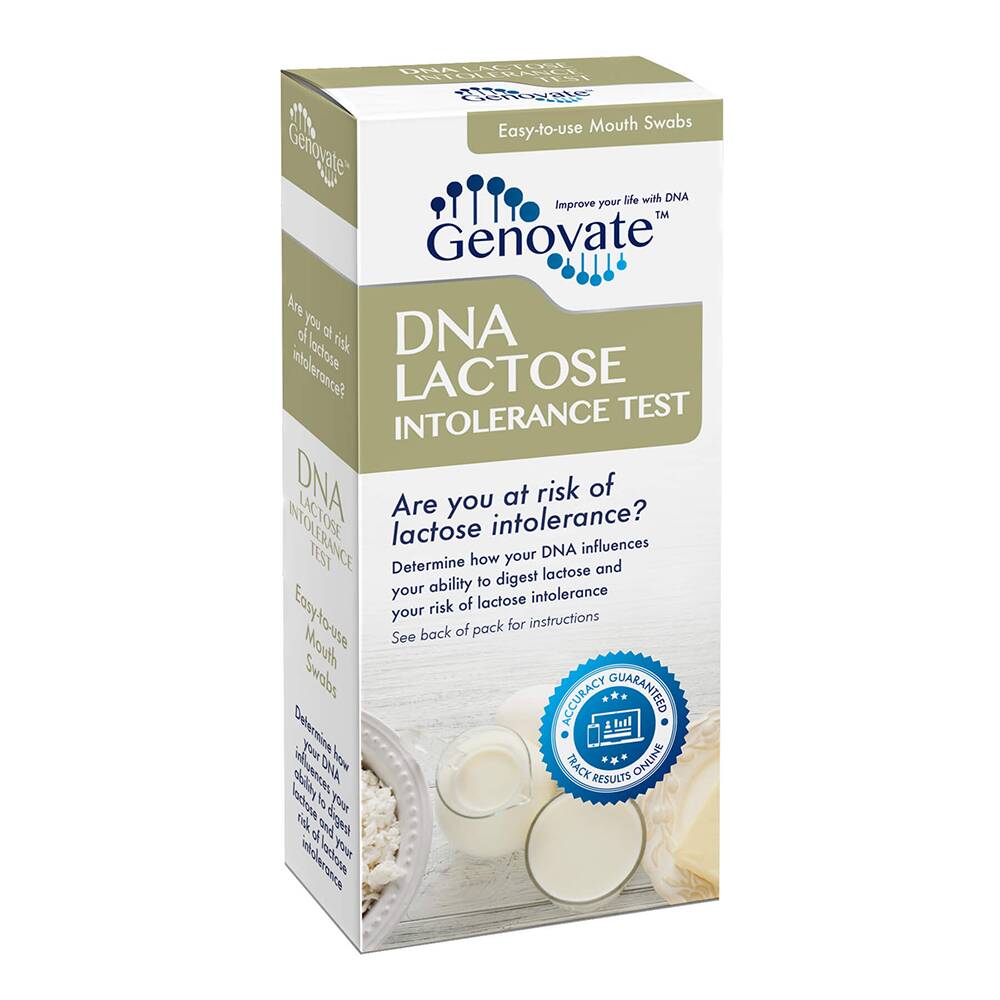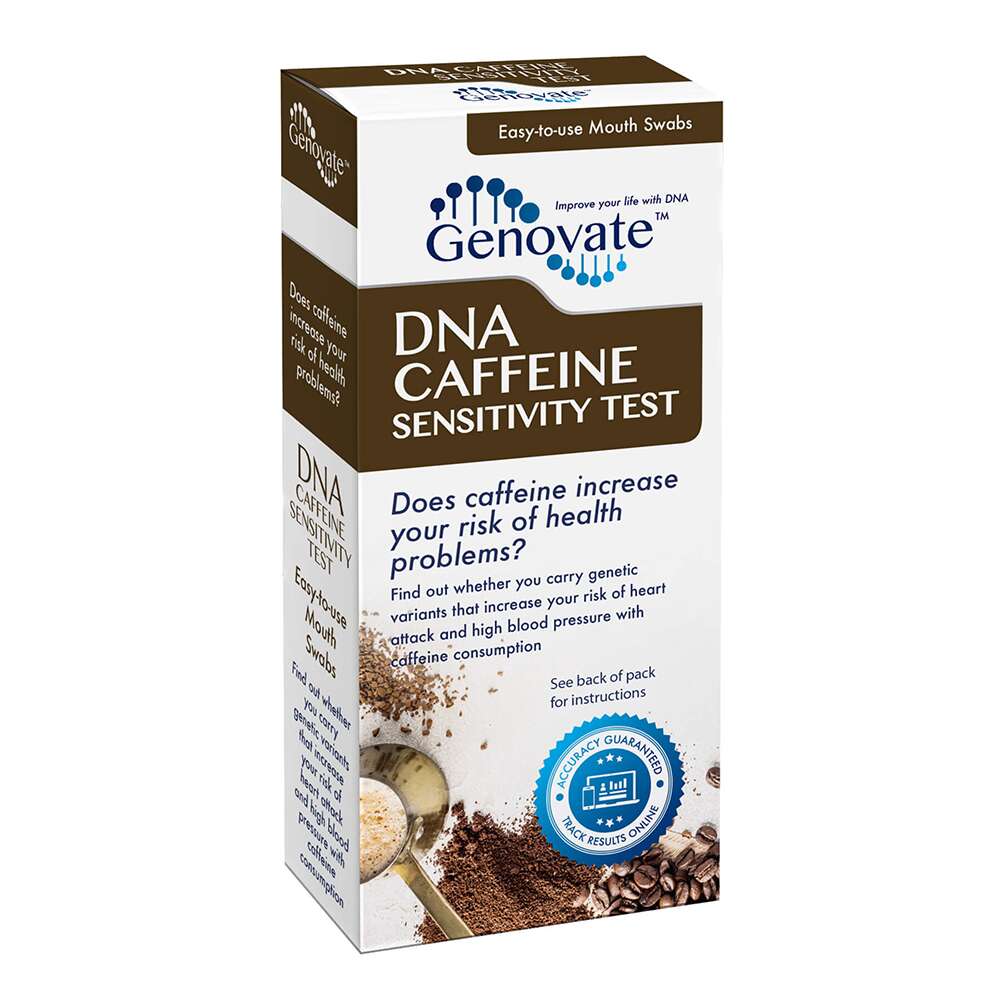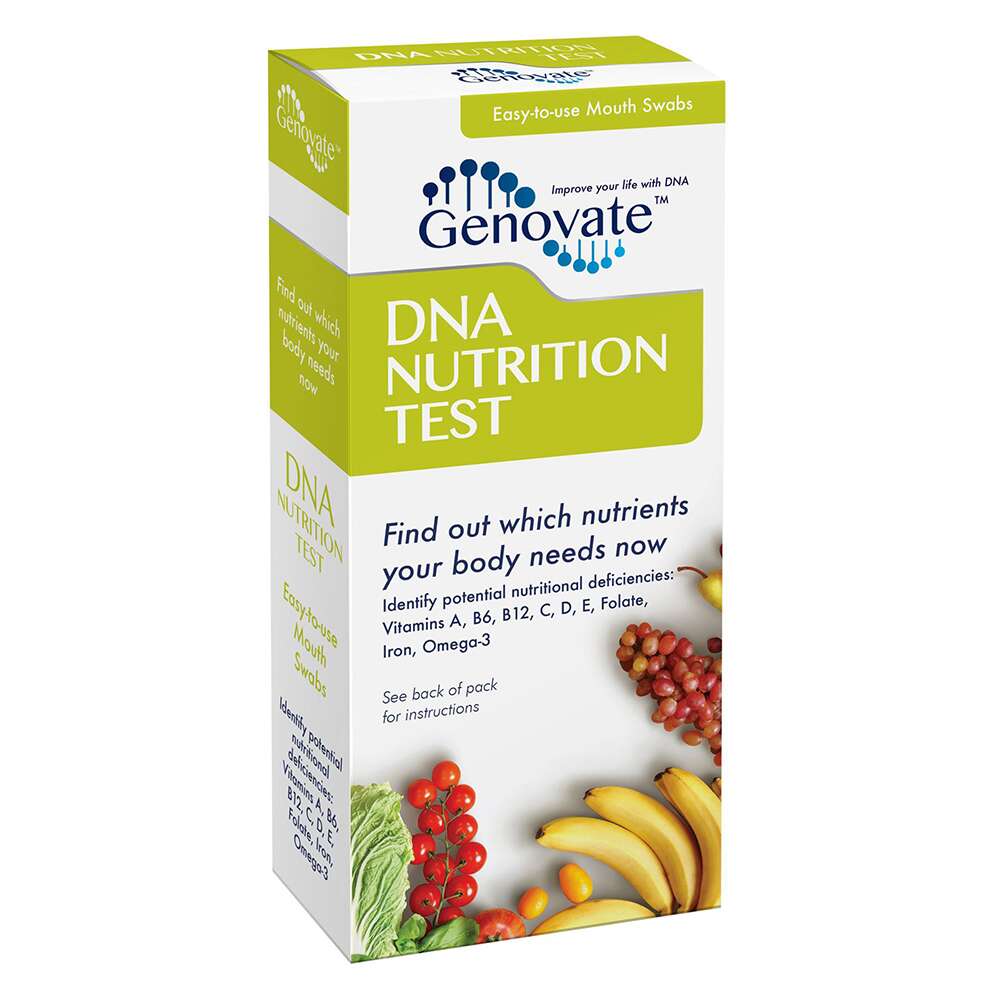Alcohol Intolerance DNA Test
$149.00
Discover how your genetic makeup may affect your body’s response to alcohol with the Genovate Alcohol Intolerance DNA Test. Whether you’ve experienced discomfort after a few sips of wine or wondered why a single beer leaves you feeling unwell, this test provides clarity.
- Examines ADH and ALDH variants that influence alcohol metabolism
- Understand your body’s response to alcohol
- Easy and convenient mouth swab sample collection
What is Alcohol Intolerance?
Alcohol intolerance is a genetic condition that affects the body’s ability to efficiently metabolize alcohol. Individuals with alcohol intolerance may experience adverse reactions such as facial flushing, nausea, dizziness, and increased heart rate after consuming even small amounts of alcohol.
These reactions are caused by the accumulation of acetaldehyde, a toxic byproduct of alcohol metabolism, due to genetic variations in the alcohol dehydrogenase (ADH) and aldehyde dehydrogenase (ALDH) enzymes.
How is Alcohol Metabolized?
The majority of alcohol is metabolized in the body through a two-step process involving the ADH and ALDH enzymes. In the first step, ADH converts ethanol (the chemical in alcohol) to acetaldehyde—a toxic substance. Acetaldehyde is usually short-lived because it rapidly transforms into acetate. Then, acetaldehyde is further metabolized to acetate by ALDH, rendering it harmless.
Genetic variations in the ADH1B, ADH1C, and ALDH2 genes can affect the rate of these reactions, leading to an accumulation of acetaldehyde and resulting in the symptoms of alcohol intolerance.
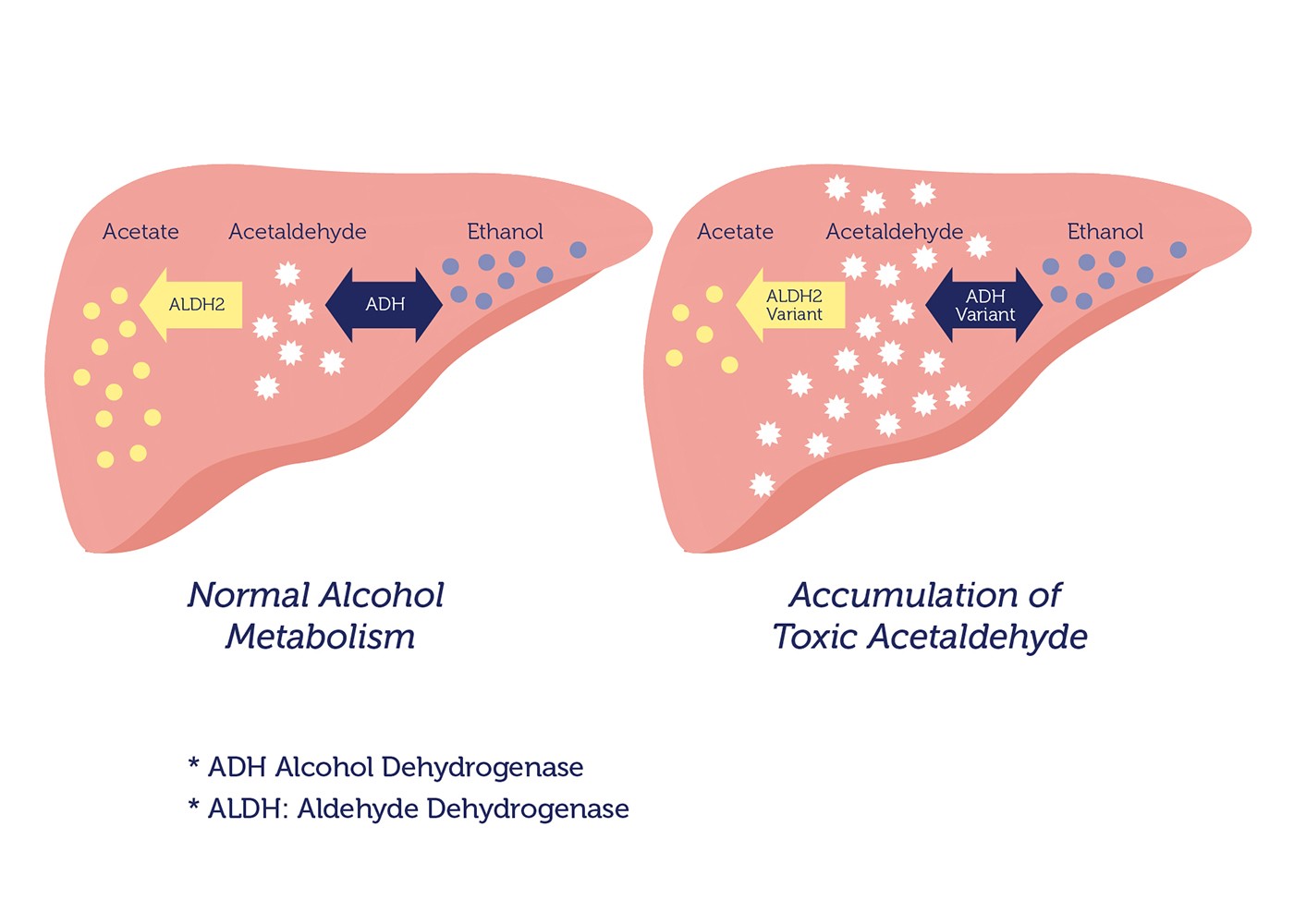

The Genovate Alcohol Intolerance DNA Test analyzes variants in three genes: ADH1B, ADH1C, and ALDH2. These genes encode enzymes involved in the metabolism of alcohol.
- ADH1B and ADH1C: Variants in the ADH1B and ADH1C genes can increase the activity of the ADH enzyme, leading to a faster conversion of ethanol to acetaldehyde. This can result in an accumulation of acetaldehyde, causing symptoms of alcohol intolerance.
- ALDH2: A common variant in the ALDH2 gene decreases the activity of the ALDH enzyme, slowing the conversion of acetaldehyde to acetate. This can lead to a buildup of acetaldehyde, exacerbating the symptoms of alcohol intolerance.
Heterozygotes and Alcohol Intolerance
The ADH1B, ADH1C, and ALDH2 genes have a cumulative effect on alcohol intolerance. Heterozygotes, individuals who inherit two different versions of a particular gene, can experience varying degrees of alcohol intolerance.
For instance, individuals with two slow ALDH2 alleles have no detectable ALDH enzyme activity and can experience severe side effects from alcohol consumption. On the other hand, heterozygotes for ALDH2, those with one fast allele and one slow allele, have a 30-50% reduction in ALDH enzyme activity.
This reduction can lead to moderate side effects and an increased risk of health complications, including a 10-fold increase in the risk of esophageal cancer for moderate drinkers and a 90-fold increased risk for heavy drinkers.
Symptoms of Alcohol Intolerance
If you are genetically predisposed to alcohol intolerance, consuming alcohol may pose significant health risks.
Immediate reactions to alcohol consumption may include facial flushing, nausea, dizziness, headaches, increased heart rate, insomnia, and severe hangovers. Moreover, the increased risk of esophageal cancer, cardiovascular problems, memory loss, mental confusion, and psychological issues further emphasize the potential health consequences for individuals with genetic variants impacting alcohol metabolism
The Genovate Alcohol Intolerance DNA Test can provide valuable insights into your genetic predisposition to alcohol intolerance, helping you make informed lifestyle choices. However, this information is intended for educational purposes only and should not replace professional medical advice. Always consult with a healthcare professional for personalized advice.

